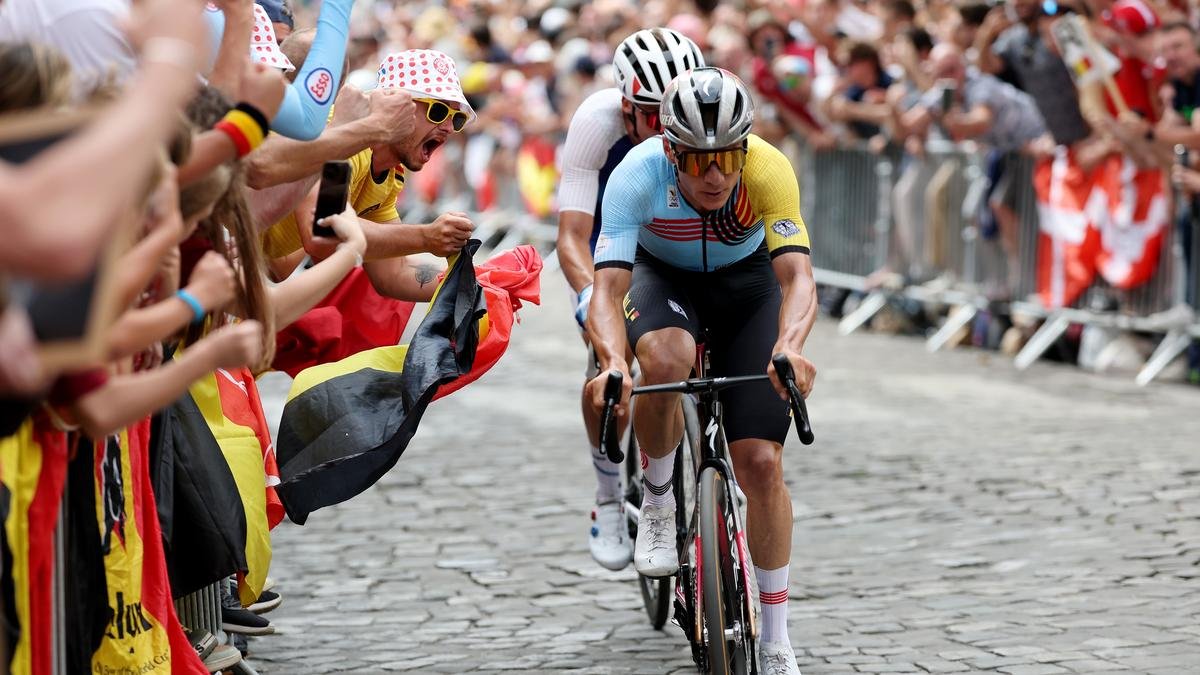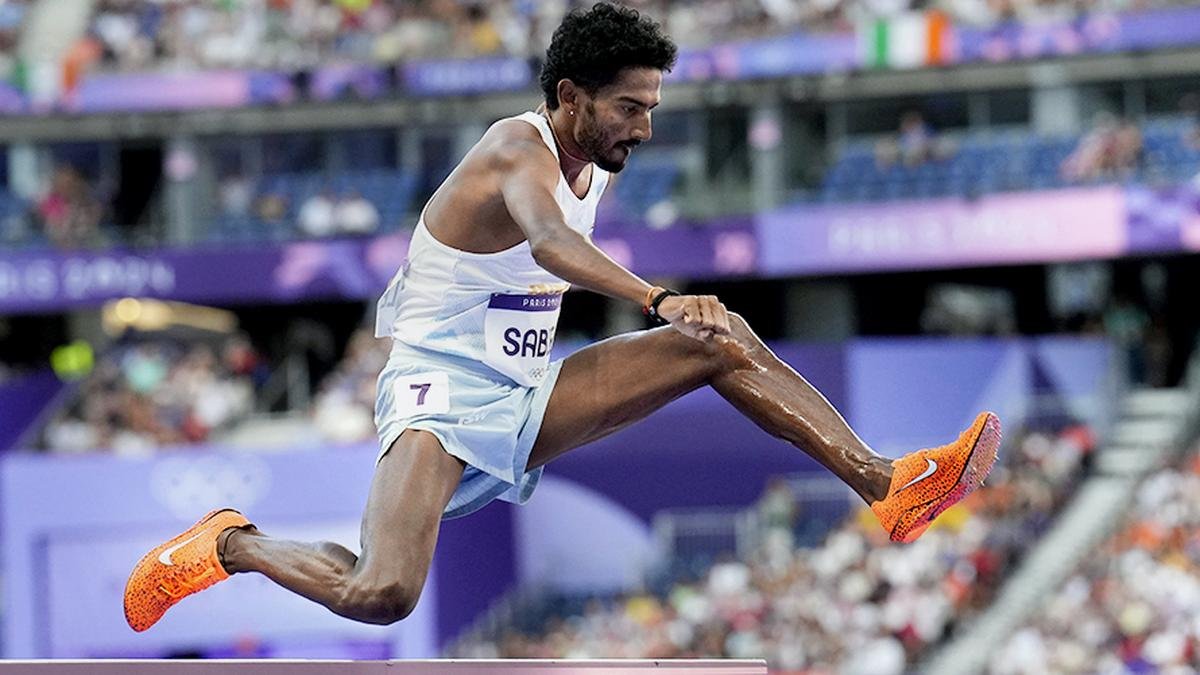The only things that slowed Remco Evenepoel on his way to Olympic history were a flat tire and the finish line.
The Belgian cyclist has become the first rider to sweep the road race and time trial at the Summer Games, relentlessly attacking over three climbs of Montmartre and building such a lead on the run-in to the finish at the Pont d’Iéna that Evenepoel was able to swap out bikes in the final kilometers and still begin his celebration early.
He raised his arms in triumph as he crossed the bridge over the River Seine on Saturday, stopping a foot or two past the finish line to soak in the cheers, the Eiffel Tower providing one last picturesque backdrop to the road race at the Paris Games.
“Too much drama,” Evenepoel said with a smile. “Being almost sure with four kilometers to go and then having a flat doesn’t help the stress and the excitement of the moment. But it’s a dream come true once again.”
Valentin Madouas, who tried to keep pace with him late in the race, held on for silver as French countryman Christophe Laporte took bronze from a group that included Matteo Jorgensen of the U.S., Ben Healy of Ireland and Marco Haller of Austria.
ALSO READ | Australian cyclist Plapp undergoes abdominal surgery after fall during Olympic time trial
The two medals for France were its first in the men’s Olympic road race in 68 years.
“What they did for us,” said former pro-turned-French national team manager Thomas Voeckler, “it was magnificent.”
The longest Olympic road race in history had been a sleepy affair until a series of attacks near the end, when Evenepoel finally made his move. But it became high drama when he was passing in front of the Louvre and his tire began to go down.
The 24-year-old from Flanders threw up his hand for help, dismounted quickly and began to scream for his team to get his spare bike. It was ready in a matter of seconds, and Evenepoel was back on his way to a historic second gold medal.
“He’s just a class above,” said Healy, who also tried to stick with Evenepoel before eventually fading to 10th. “When he’s got legs like that, yeah, what can you do? He’s a hard one to stay with when he has legs like that.”
The win capped a spectacular few weeks for Evenepoel that began with a third-place finish in the Tour de France.
“I achieved everything I wanted to achieve this month,” he said. “My season, I cannot describe it.”
The early breakaway of five riders formed quickly Saturday after the neutralized start from the Trocadéro, where fans gathered in the shadow of the Eiffel Tower to see them off. With no real threats among them, the peloton was content allowing the break to build a sizeable gap of more than 14 minutes as the riders headed off into the French countryside.
They passed the Palace of Versailles, where the Olympic equestrian competitions are taking place, and the National Velodrome of Saint-Quentin-en-Yvelines, before they began knocking off the 21 punchy climbs dotting the 273-kilometer (170-mile) route.
The narrow roads soon turned back toward the French capital, and pressure mounted to bring back the break.
What makes that endeavor complex during the Olympic road race is that, unlike most professional races, riders are not allowed to use radios. So the only way the peloton can judge how far behind they are is the updated chalkboard held aloft by the rider of a motorbike, or by dropping back to the team cars and discussing the situation with their coaches.
It was the Dutch, Danish and Belgian teams that took leadership of the peloton on the drive back to Paris.
The field came together about 70 kilometers (43 miles) from the finish when Evenepoel made the first real attack, only for the peloton to react quickly to the newly minted Olympic time trial champion. More attacks served to ramp up the tempo, and riders who were unable to keep pace were suddenly shedding off the back.
The race favorites, led by Mathieu van der Poel of the Netherlands and Belgian rival Wout van Aert, attacked on the first of the Montmartre climbs, where thousands of flag-waving fans standing shoulder-to-shoulder had waited for hours on the steps of the white stone basilica of Sacre Coeur to see what everyone expected to be the defining moment of the race.
Evenepoel gave them a show to remember.
He bridged across to the leading group with an incredible display of power, worked briefly with Madouas and then left the Frenchman behind. Evenepoel quickly opened a gap of nearly a minute by the last of the Montmartre climbs, a time buffer that ultimately came in handy when his tire began to go down right in front of the Louvre.
“I knew Montmartre wasn’t the climb that really suited me. The other two bumps suited me better,” Evenepoel said. “But I just went all-in every time on the climbs and tried to keep it stable. At the end it was enough, so what can I say?”




